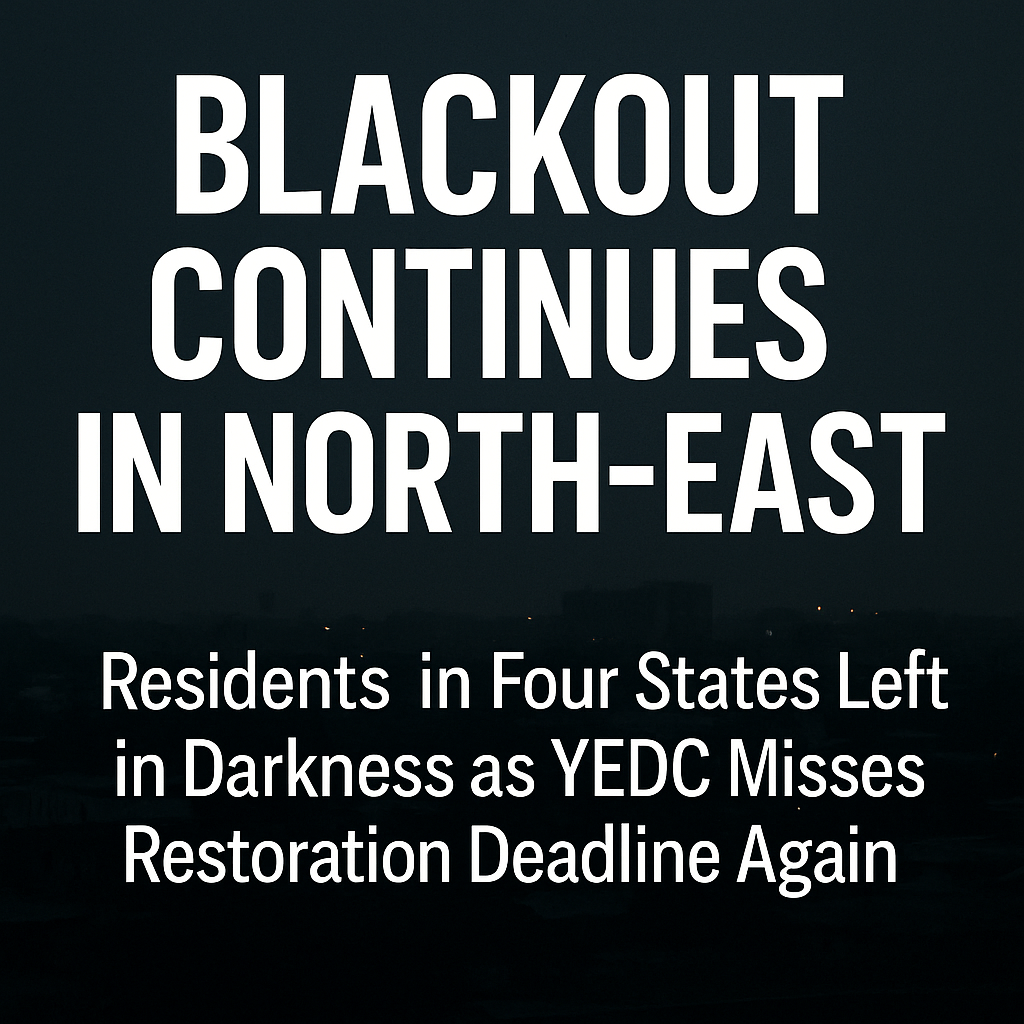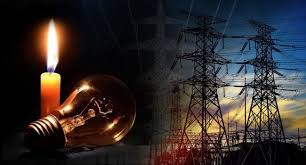Four days after the promised restoration date, millions of residents across Nigeria’s North-East remain in total darkness as the Yola Electricity Distribution Company (YEDC) fails to restore power in four states — Adamawa, Borno, Taraba, and Yobe.
YEDC had earlier assured the public that power would return by 5:00 p.m. on Saturday, June 14, 2025, following a weeklong outage meant to enable upgrade works by the Transmission Company of Nigeria (TCN). As of today, however, electricity is yet to be restored, plunging the region into further frustration, hardship, and anger.
A Region in the Dark
The blackout, which began on June 10, was initially attributed to “critical transmission infrastructure upgrades” on the Jos–Gombe 330kV and Jos–Bauchi–Gombe 132kV lines. TCN reportedly began installing new towers at the Bauchi 330kV station and rerouting a 132kV line to improve power supply.
But the continued delay has sparked widespread condemnation, with residents and business owners accusing YEDC of incompetence and poor communication.
“They made a public promise and have broken it again. We’re suffering, and it feels like nobody cares,” said Sani Bello, a cold-store operator in Yola, while speaking with The North Journals. “I lost over ₦400,000 worth of goods this week alone.”
Businesses Grounded, Lives Disrupted
In markets across Yola, Mubi, Damaturu, Maiduguri and Jalingo, economic activity has ground to a halt. Vendors report skyrocketing costs of transportation, refrigeration, and basic services. Those who rely on generators now face overwhelming fuel expenses, as the average cost of petrol in the region hovers above ₦950 per litre.
Small and medium enterprises, particularly in agribusiness, food processing, and healthcare, have been severely hit. Clinics in affected areas say they’ve scaled down emergency services due to lack of power, and schools have suspended activities.
“We are being punished for living in the North-East,” said Halima Mohammed, a mother of four in Taraba. “We don’t even know who to hold accountable anymore.”
Broken Promises, Eroded Trust
This is not the first time YEDC or TCN have failed to meet restoration deadlines. In November 2024, TCN acknowledged that one of the upgraded towers on the Bauchi line collapsed mid-construction, further delaying service.
According to the Nigerian Electricity Regulatory Commission (NERC), Nigeria suffered at least six grid collapses in 2024 alone — highlighting the fragility of the national power infrastructure. Customer satisfaction in the electricity sector remains under 45%, with trust in distribution companies like YEDC at an all-time low.
A 2023 report by Energy Progress Africa noted that North-East Nigeria is among the least electrified regions in the country, with only 43.2% of rural residents having reliable access to electricity.

Legal Threats and Community Resistance
In Taraba State, frustrated residents of the Ministerial Estate in Jalingo have issued a pre-action notice against YEDC, accusing the company of “gross negligence and breach of contract.” The community is demanding compensation for losses and immediate intervention by the Federal Government.
Civil society groups are also calling for the government to consider revoking YEDC’s license and replacing the company with a more competent operator.
A Failing System in Need of Reform
The ongoing outage illustrates a wider institutional failure in Nigeria’s power sector — characterized by broken communication, weak accountability, and systemic neglect of marginalized regions.
“This is more than just a technical problem. It’s a breakdown of public service,” said energy policy analyst Usman Ibrahim. “When institutions fail repeatedly and promises are not kept, citizens lose faith — not just in companies, but in governance itself.”
What Next for the North-East?
With no new timeline from YEDC or TCN, residents remain uncertain about when power will return. In the meantime, anger continues to mount.
As pressure builds from both civic groups and local leaders, the Federal Government faces a crucial test: will it intervene decisively to address the blackout and hold failing institutions accountable — or allow the darkness to deepen both literally and metaphorically?
